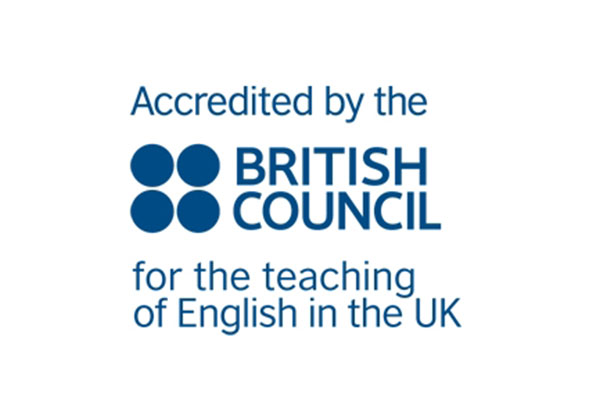High-quality
English language
courses
At British Council accredited
centres in the UK
The world’s most robust English language course accreditation standards
The UK’s accreditation standards ensure international students have a productive and enjoyable experience when they study English in the UK. All international students must study at an institution with UK government-approved accreditation. The British Council accreditation scheme, run in partnership with English UK, is one of these. Students studying at a British Council accredited school will enjoy high standards in teaching, welfare, accommodation and school facilities.

British Council accreditation
The British Council accreditation scheme is the most rigorous inspection scheme in the world for English language centres. To maintain British Council accreditation, centres must meet high quality standards in five areas: teaching and learning; school management; student services; premises and resources; and safeguarding under 18s.
Inspectors will observe classes, visit accommodation and centre premises, review resources, talk to staff, teachers and students.
> Learn more about accreditation and see reports for each centre on britishcouncil.org.

Teaching and learning
British Council-accreditation requires language centres to have teachers and academic managers who are appropriately qualified. All teachers will have a recognised qualification such as the Cambridge CELTA, or the Trinity CertTESOL, a relevant MA qualification or equivalent. Academic managers and senior teachers will usually have a diploma level qualifications such as Cambridge DELTA, Trinity DipTESOL or a relevant MA.
British Council looks at the management of teaching and learning programmes, appropriate teacher timetabling and makes sure that teachers have the support and guidance that they need.

Quality of course planning and design
All teachers are regularly observed and supported by their centre’s academic managers to ensure that lessons are well planned and that students have every opportunity to learn new language and practise using it on a daily basis.
Teachers are also required to design schemes of work so that learning is coherent, relevant and progressive.

Student services and facilities
Language centres offer well-equipped classrooms that provide a comfortable study environment, with sufficient space, lighting, ventilation and heating. They also have areas where students can relax and eat, and an up-to-date range of resources to help students learn effectively.
The language centre’s staff are always available to give students advice and solve any problems and will provide a 24-hour emergency school contact. Appropriate activities and excursions are provided depending on the student’s age and type of programme. All students are asked to provide feedback on their programmes and accommodation, and this is used to ensure that high standards are maintained.

Accommodation
Accommodation organised by the language centre or via a British Council approved accommodation agency is regularly inspected. It must be in good condition, comfortable and clean, with sufficient space, heating and light. Bedding and towels are changed weekly and students have access to laundry facilities.
In homestays, the student is treated as a member of the household and has many opportunities to practise their English. Students can speak to their language centre to resolve any accommodation problems.

Safeguarding under 18s
For all students under the age of 18, there are rules and procedures to protect them from the moment they arrive in the UK and throughout their stay. These procedures are among the most robust in the world. All schools must implement a safeguarding policy and ensure that staff are trained to recognise and deal with any problems.
Sometimes different arrangements are made for 16 and 17 year olds, who can study alongside older adults. In all cases, parents must provide consent for these arrangements.
> Find out more about how UK English language schools look after younger students.

Student protection and complaints
Most centres with British Council accreditation are members of English UK, the association that represents UK English language centres. English UK has a comprehensive procedure to deal with complaints made by students against its member centres. This ensures that student complaints are taken seriously and usually resolved swiftly. If the student is not satisfied by their centre’s internal response to the complaint, English UK will speak to both parties to seek an agreed resolution and, if necessary, send the complaint to an independent person called an ombudsman. Read more about complaints on englishuk.com.
English UK also tries to limit the impact of unexpected centre closures on current students. Student Emergency Support helps students to complete their studies without additional course costs when their British Council accredited English language teaching centre unexpectedly closes permanently. Read more about student emergency support on englishuk.com.
How to find an accredited language centre
Look for the British Council ‘accredited English language teaching centre’ logo.
> See the full list of British Council accredited centres on the British Council website
> To search for a course using specific criteria, use the course finder on the English UK website. All English UK members have British Council accreditation.
